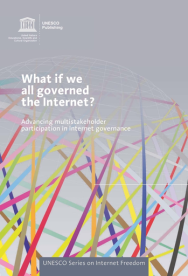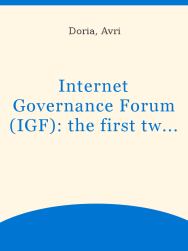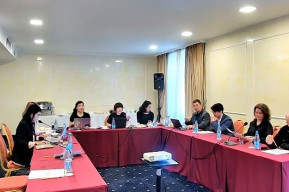
Internet Governance
Internet governance is the complementary development and application by governments, the private sector, civil society and the technical community, in their respective roles, of shared principles, norms, rules, decision-making procedures, and activities that shape the evolution and use of the Internet. For UNESCO, Internet Governance is a central issue because of Internet’s potential to foster sustainable human development and the building of inclusive knowledge societies, and enhancing the free flow of information and ideas throughout the world.
The Organization therefore advocates an open, transparent and inclusive approach to Internet Governance based on the principle of openness, encompassing the freedom of expression, respect for human rights and privacy, universal access and technical interoperability. Ethics and also the respect for cultural and linguistic diversity in cyberspace are other key concerns of the Organisation. All of these elements are essential for UNESCO to fulfill its mandate and mission entrusted to it by Member States.
The World Summit on the Information Society (WSIS) held in 2003 and 2005, resulted in the creation of the multistakeholder Internet Governance Forum – an annual forum in which international agencies, governments, Internet professionals, business and civil society organizations can explore, on equal footing, the development on the Internet and its interaction with other area of public policy.
All the information regarding the mandate of the IGF, the IGF Multistakeholder Advisory Group members, and the meetings are available on IGF website.
Events
News
Publications










